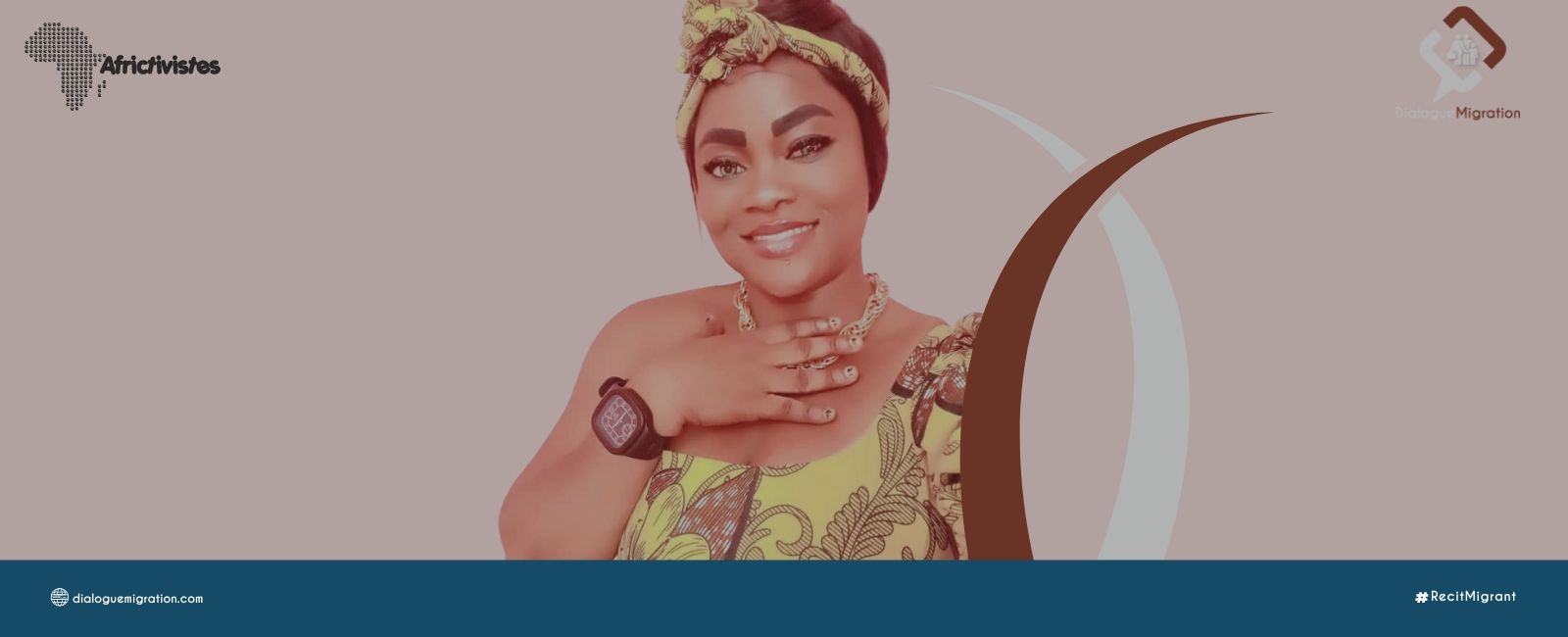

“If my mother had not gone to ‘hustle’ in the Congo herself, I certainly would have not been born.”
Through her mother, she is a descendant of the Yoruba of Porto-Novo, known for their business and migration acumen. Nathalie Karim was born to a Congolese father from the Democratic Republic of Congo (DRC) and a Yoruba mother from southeastern Benin.
Dialogue Migration went to meet her in Porto-Novo. The Beninese-Congolese is proud to belong to both her countries and speaks enthusiastically about her background and her passion for aesthetics.
What nationality are you from and why did you come to Benin?
I am Beninese-Congolese, my name is Nathalie Yasmine Karim. It is one of the best things in the world to belong to these two countries. I was born in Congo (DRC), let’s say it, by God’s will. I am the only daughter out of 6 siblings. Now 27 years old, I returned to Benin, my mother’s country of origin in 2019. My mother always wanted her children to come and know her country and Porto-Novo, her hometown. But it took me long before I could do it. Indeed, it was only after obtaining my Baccalaureate in 2019, after the death of my father, that I came for the first time to know my mother’s country and continue my university studies. She had already returned to Porto-Novo, a city she left at 17. She built her entire youth and life on the banks of the Congo River. Leaving with one of her paternal aunts established there at the time, she had subsequently set up her hardware stores in Brazzaville and Pointe Noire. Today, she is a woman in her sixties who spent more than 40 years between Kinshasa and Brazzaville.
Why did your mother leave Benin?
My mother’s community, the Yoruba of Porto-Novo, is famous for business. Some go to Congo, Equatorial Guinea, Gabon and in other Central African countries to do business. So she left in order to help her family and make her dreams come true. Today, she does not regret it because in Porto-Novo, she built her own house and houses for rent. El Hadja, as she is called, met my father in Pointe Noire. She was doing her business there and my father was also there when they met. It was only after they got married that they came to live in the Democratic Republic of Congo. My father later converted to Islam, hence his name Karim which I bear. My paternal family also traveled outside the DRC. Some are in Libreville in Gabon, Brazzaville in Congo and others in Luanda in Angola. Apart from Kinshasa where I did all my schooling, I also went to Libreville where I had aunts. Even here in Benin, I also have paternal aunts in Cotonou, Congolese women who trade and others…
Why did you choose to train in aesthetics in Benin?
When I returned to Benin in 2019, I had started studying accounting at a bilingual private university in Cotonou. I later was in a relationship with a Nigerian man, also a student at the same university, with whom I had a beautiful little girl named Blessing, just to mean that it is a blessing. He had come to Benin for his studies. My lifestyle, my Congolese culture, especially since I was bilingual and spoke English and other things made me feel very close to the Nigerian women among whom I have friends. Personally, I like aesthetics. I like to do my hair, dress, makeup, and look good all the time. And the people appreciate it. That’s what steered me towards this profession. When I got pregnant, I stopped studying. After giving birth, I thought about learning a business. So, as my daughter started to grow up, I signed up for a training in aesthetics.
The profession of aesthetics in Benin has value. If you do your training here and you have your diploma, you can travel and go to work elsewhere (…) I also see that Benin is ahead of some countries in this area. There are many Congolese men and women here who are learning the craft of aesthetics, so that once they return home, their services will be different. Some have already completed their training and received their diplomas to return to the DRC. In the Congo, there are Beninese who own training centres there.
Me, I do aesthetics to highlight all women. Because as far as I know, all women are beautiful. There are some that need a little touch up to be radiant; And there are some who, despite their beauty, need some accessories …
Today, I am at the end of my training and I already have to my credit a shop, named after my daughter Blessing, where I make wigs, do makeup, pedicure and manicure, place false eyelashes … and also sell beauty products while waiting to finalize my training and set up my beauty salon.
How does it feel to be a Beninese-Congolese?
I can tell you that I am proud to belong to both of these communities. The two are arguing over me… And if my mother hadn’t gone to the Congo to “hustle”, I certainly wouldn’t have been born. I am from Madimba in Kinshasa and from the Kikoli family. Through my fashion tastes, my behavior, people easily see that I am a Congolese. In the DRC, Pointe Noire or Brazzaville (editor’s note: Congo), I feel at home just like in Benin, because I am half Beninese and I am proud to have two homelands.
For me, leaving one’s country to look for something better or even settle elsewhere, is not bad. When we are in a place that does not lead to success, we must try other places. Here (editor’s note: in Benin), people like foreigners and do not repel them.


